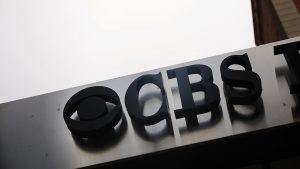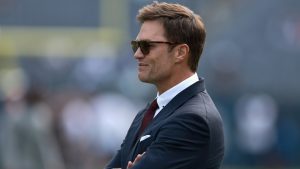
Warner Bros. Discovery CEO David Zaslav told Wall Street analysts Monday that the “bold choice” to effectively unbundle the company he helped forge three years ago “reflects our belief that each company will go further and faster apart than they can together.”
“We are in the midst of this generational disruption, and things are changing, they’ve changed significantly in the last few months,” Zaslav lamented Monday.
The CEO and WBD’s CFO Gunnar Weidenfels (who will become CEO of the spun out TV networks business once the deal closes) hosted an investor call early Monday, outlining the rationale that led to the looming split, and detailing a little bit about what each business will look like once they deal is complete.
“These companies will be better aligned with shareholders based on each business’s individual dynamics and growth prospects, more agile, more aggressive and creative in pursuing growth and sharper in their ability to deliver consumers more of the stories and entertainment they demand,” Zaslav said on the call, adding that they expect each business to attract very different sets of investors.
Zaslav will oversee the studios business, which will include the Warner Bros. film and TV studios and HBO Max, while Weidenfels will manage the global networks, including TNT, TBS, CNN and the former Discovery channels, as well as Discovery+. Notably, it will also include WBD’s sports rights, with the CFO suggesting that the rights could give it optionality down the line: “The US sports rights will reside at the global networks, and its management team will determine how best to monetize the streaming and digital rights over time,” Weidenfels said.

But as strong an asset as the sports rights are, Weidenfels will also assume one of WBD’s least desirable assets: Its tens of billions of dollars in debt.
“It’s safe to assume that the majority of the debt is going to live with global networks and a smaller portion — but a not-insignificant portion — on streaming & studios as well,” he told analysts.
The executives remained coy on how the companies will team up after the split, though they indicated that they may still work together on things like distribution and ad sales, but that each company will also focus on their own business and do their own deals.
Zaslav says of his future company, “We feel like we’ve found a very compelling strategy of quality,” leaning into HBO.
“We put HBO back in [to HBO Max] for a reason. People see us as the highest quality streaming service out there,” Zaslav added. “We have the highest quality motion picture library, TV library, as all the HBO content. And then we have the ability with Warner Bros. Television in order to augment, which we did with The Pitt, which we’re doing with Harry Potter. So we’re the biggest maker of television.”

“The piece that is that is up and down is the motion picture business,” he added, noting that it is more hit driven and smaller compared to the TV business.
“We have confidence in that business, but it’s probably the more difficult business in terms of margin and swings,” Zaslav added, outlining the plan moving forward. “I think the thing that I feel best about is we put real discipline around it, but our overall content is underused — our great iconic content — rather than overused. So we’ll be going more and more to the best content that we have, that people see and love all around the world, whether that’s Lord of the Rings or DC. [WBD film chiefs Mike DeLuca and Pam Abdy] are really looking at mining the big brands. We’re still going to do a lot of original, but mining those big brands that give us a real advantage in the marketplace.”
As for the TV networks, Weidenfels told investors that “I have full conviction that we will see very successful networks for many, many years to come.”
“The desire for people to consume content, especially from recognizable and iconic brands like TNT, sport, Food Network, CNN, etc., none of that is changing,” he added.
Zaslav said that content from the linear networks account for about 25 percent of HBO Max viewing, and that the split will likely come up during carriage negotiations, though a series of deals made over the last year mean no major talks are imminent.

“There are times when you have distributors that really just want HBO Max, and we’ve ended up in protracted discussions trying to create a alignment around more of our products,” Zaslav said. “And there are times when people just want the free to air and the linear services.”
But the split is also part and parcel with potential dealmaking.
Weidenfels told investors that once the deal closes, each company should be “free and clear” to pursue deals, unlike the WBD deal, which had a complex structure that meant it would have to wait two years to do anything meaningful.
“We do believe the transaction provides each business with greater ability to capitalize on potential options and opportunities that may arise, but I also want to stress that there is no such plan,” he added.
And in the meantime, there will be even more cost efficiencies to find and deals to strike.

“Look, the important point for me is, yes, we will have to continue to focus on efficiencies and drive efficiencies as the traditional part of that business continues to see secular pressure,” Weidenfels said. “But I also think that we do have very significant investment opportunities and there will be more opportunity for for driving efficiency and and transforming those brands into a into a digital future.”
#David #Zaslav #Warner #Bros #Discovery #SpinCo #Plan






